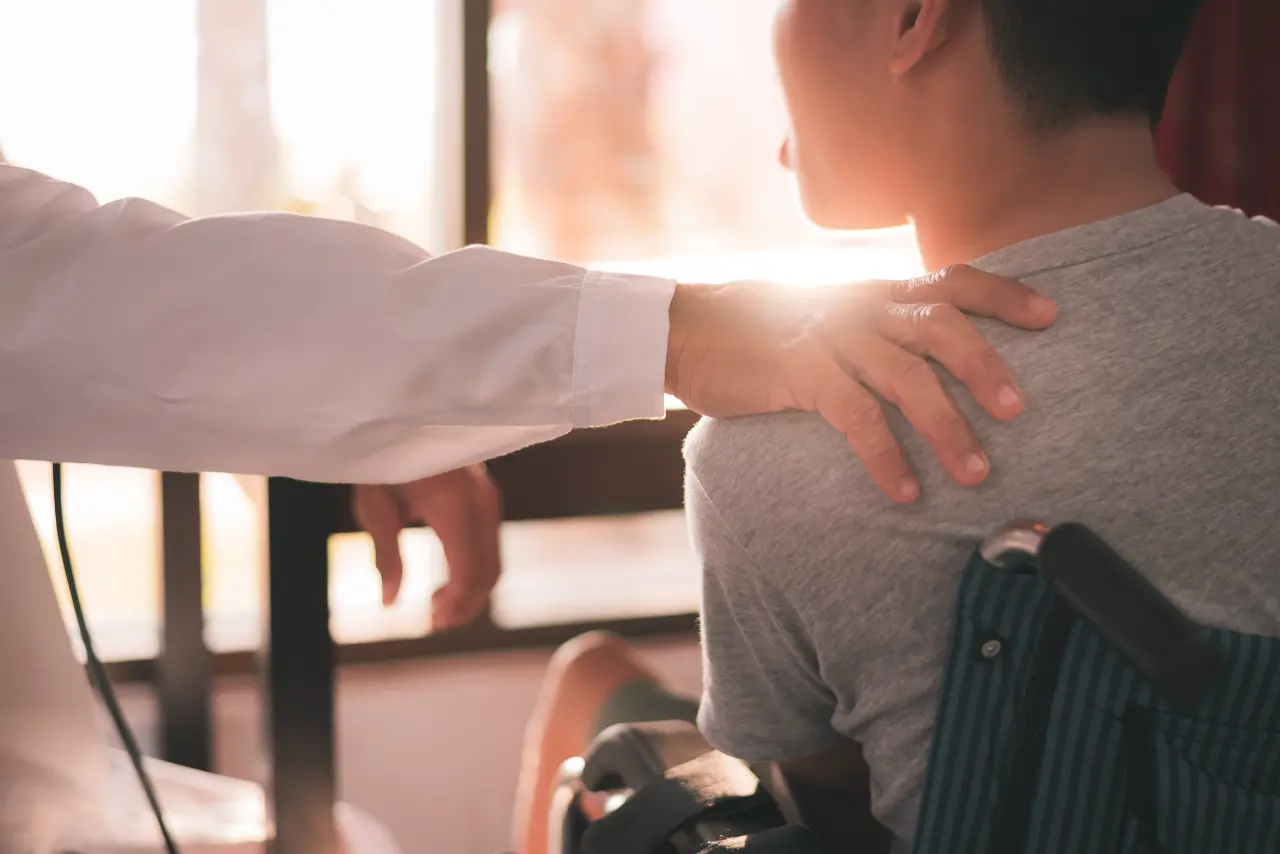Psychological Services for Personal Injury
Personal injuries can leave more than just physical scars. They often lead to significant psychological distress that requires professional attention.
This is where personal injury therapy comes into play. It offers a holistic approach to recovery, addressing both physical and emotional wounds.
In this article, we’ll explore the importance of psychological services for personal injury victims. We’ll delve into trauma counseling, mental health support, and how these services can aid in the recovery process.
Understanding Personal Injury and Psychological Impact
Personal injuries can result from various incidents, such as car accidents, workplace mishaps, or medical malpractice. These events can be traumatic, leading to emotional distress alongside physical pain.
The psychological impact of personal injuries can manifest in many ways. Common effects include anxiety, depression, and even Post-Traumatic Stress Disorder (PTSD). These conditions can significantly hinder a person’s recovery and overall quality of life.
Recognizing the psychological impact of personal injuries is the first step towards holistic recovery. It paves the way for effective trauma counseling and mental health support.
The Role of Trauma Counseling in Recovery
Trauma counseling plays a crucial role in personal injury recovery. It helps individuals process the emotional aftermath of their injury. This therapeutic approach can alleviate trauma-related symptoms and foster emotional healing.
Cognitive-behavioral therapy (CBT) is a common method used in trauma counseling. It helps individuals understand and change thought patterns that lead to harmful behaviors or distressing feelings.
Through trauma counseling, individuals can regain a sense of control and empowerment. It’s a vital part of the journey towards emotional recovery.
Mental Health Support for Personal Injury Victims
Mental health support is essential for personal injury victims. It helps prevent long-term psychological issues such as anxiety, depression, and PTSD. These services provide a safe space for individuals to express their fears and frustrations.
Therapists work in conjunction with medical professionals to provide comprehensive care. They advocate for patients’ needs throughout the recovery process. This collaboration ensures that both physical and emotional aspects of recovery are addressed.
Addressing mental health after an injury can lead to better overall well-being and quality of life. It’s a proactive step towards recovery.
Types of Personal Injury Psychological Services
Personal injury psychological services are diverse. They can include individual therapy, group therapy, and family counseling. Each type of therapy is tailored to meet the specific needs of the individual.
Cognitive-behavioral therapy (CBT) is a common and effective treatment for trauma-related symptoms. It helps individuals manage stress and emotional pain. Other therapy techniques may involve relaxation training, exposure therapy, and resilience-building exercises.
Support groups provide a community of peers who understand the challenges of injury recovery. They offer a platform for sharing experiences and coping strategies. This sense of community can be a powerful tool in the recovery process.
The Benefits of Early Psychological Intervention
Early intervention with psychological services can improve recovery outcomes. It can prevent long-term psychological issues such as anxiety, depression, and PTSD. This is crucial for overall mental health.
Psychological assessments can help tailor therapy to the individual’s specific needs. They provide a roadmap for the therapeutic journey. This personalized approach enhances the effectiveness of treatment.
Addressing mental health early after an injury can lead to better overall well-being and quality of life. It’s a proactive step towards recovery, fostering a sense of control and empowerment.
Coping Strategies and Resilience Building
Therapy techniques may involve relaxation training, exposure therapy, and resilience-building exercises. These strategies help individuals manage stress and emotional pain. They are key to emotional recovery.
Support groups provide a community of peers who understand the challenges of injury recovery. They offer a safe space to discuss fears, frustrations, and hopes for the future. This sense of community can be healing.
Resilience training can help individuals bounce back more quickly from setbacks. It equips them with tools for dealing with future stressors and preventing relapse. This is a crucial part of personal injury therapy.
Navigating Insurance and Legal Aspects
Insurance coverage for personal injury therapy varies. It’s important to understand one’s policy. This can help individuals access the psychological services they need.
Legal professionals may recommend psychological services to support a personal injury claim. Therapy can help individuals navigate the emotional aspects of legal proceedings. It’s a crucial part of the recovery journey.
Conclusion: Embracing the Journey to Recovery
Personal injury therapy is a proactive step towards recovery. It’s a sign of strength, not weakness. It helps individuals regain a sense of control and empowerment.
The goal of personal injury psychological services is to restore mental and emotional functioning. It’s about embracing the journey to recovery and improving overall well-being.
Psychological Services for Personal Injury
Personal injuries can leave more than just physical scars. They often lead to significant psychological distress that requires professional attention.
This is where personal injury therapy comes into play. It offers a holistic approach to recovery, addressing both physical and emotional wounds.
In this article, we’ll explore the importance of psychological services for personal injury victims. We’ll delve into trauma counseling, mental health support, and how these services can aid in the recovery process.
Understanding Personal Injury and Psychological Impact
Personal injuries can result from various incidents, such as car accidents, workplace mishaps, or medical malpractice. These events can be traumatic, leading to emotional distress alongside physical pain.
The psychological impact of personal injuries can manifest in many ways. Common effects include anxiety, depression, and even Post-Traumatic Stress Disorder (PTSD). These conditions can significantly hinder a person’s recovery and overall quality of life.
Recognizing the psychological impact of personal injuries is the first step towards holistic recovery. It paves the way for effective trauma counseling and mental health support.
The Role of Trauma Counseling in Recovery
Trauma counseling plays a crucial role in personal injury recovery. It helps individuals process the emotional aftermath of their injury. This therapeutic approach can alleviate trauma-related symptoms and foster emotional healing.
Cognitive-behavioral therapy (CBT) is a common method used in trauma counseling. It helps individuals understand and change thought patterns that lead to harmful behaviors or distressing feelings.
Through trauma counseling, individuals can regain a sense of control and empowerment. It’s a vital part of the journey towards emotional recovery.
Mental Health Support for Personal Injury Victims
Mental health support is essential for personal injury victims. It helps prevent long-term psychological issues such as anxiety, depression, and PTSD. These services provide a safe space for individuals to express their fears and frustrations.
Therapists work in conjunction with medical professionals to provide comprehensive care. They advocate for patients’ needs throughout the recovery process. This collaboration ensures that both physical and emotional aspects of recovery are addressed.
Addressing mental health after an injury can lead to better overall well-being and quality of life. It’s a proactive step towards recovery.
Types of Personal Injury Psychological Services
Personal injury psychological services are diverse. They can include individual therapy, group therapy, and family counseling. Each type of therapy is tailored to meet the specific needs of the individual.
Cognitive-behavioral therapy (CBT) is a common and effective treatment for trauma-related symptoms. It helps individuals manage stress and emotional pain. Other therapy techniques may involve relaxation training, exposure therapy, and resilience-building exercises.
Support groups provide a community of peers who understand the challenges of injury recovery. They offer a platform for sharing experiences and coping strategies. This sense of community can be a powerful tool in the recovery process.
The Benefits of Early Psychological Intervention
Early intervention with psychological services can improve recovery outcomes. It can prevent long-term psychological issues such as anxiety, depression, and PTSD. This is crucial for overall mental health.
Psychological assessments can help tailor therapy to the individual’s specific needs. They provide a roadmap for the therapeutic journey. This personalized approach enhances the effectiveness of treatment.
Addressing mental health early after an injury can lead to better overall well-being and quality of life. It’s a proactive step towards recovery, fostering a sense of control and empowerment.
Coping Strategies and Resilience Building
Therapy techniques may involve relaxation training, exposure therapy, and resilience-building exercises. These strategies help individuals manage stress and emotional pain. They are key to emotional recovery.
Support groups provide a community of peers who understand the challenges of injury recovery. They offer a safe space to discuss fears, frustrations, and hopes for the future. This sense of community can be healing.
Resilience training can help individuals bounce back more quickly from setbacks. It equips them with tools for dealing with future stressors and preventing relapse. This is a crucial part of personal injury therapy.
Navigating Insurance and Legal Aspects
Insurance coverage for personal injury therapy varies. It’s important to understand one’s policy. This can help individuals access the psychological services they need.
Legal professionals may recommend psychological services to support a personal injury claim. Therapy can help individuals navigate the emotional aspects of legal proceedings. It’s a crucial part of the recovery journey.
Conclusion: Embracing the Journey to Recovery
Personal injury therapy is a proactive step towards recovery. It’s a sign of strength, not weakness. It helps individuals regain a sense of control and empowerment.
The goal of personal injury psychological services is to restore mental and emotional functioning. It’s about embracing the journey to recovery and improving overall well-being.



















